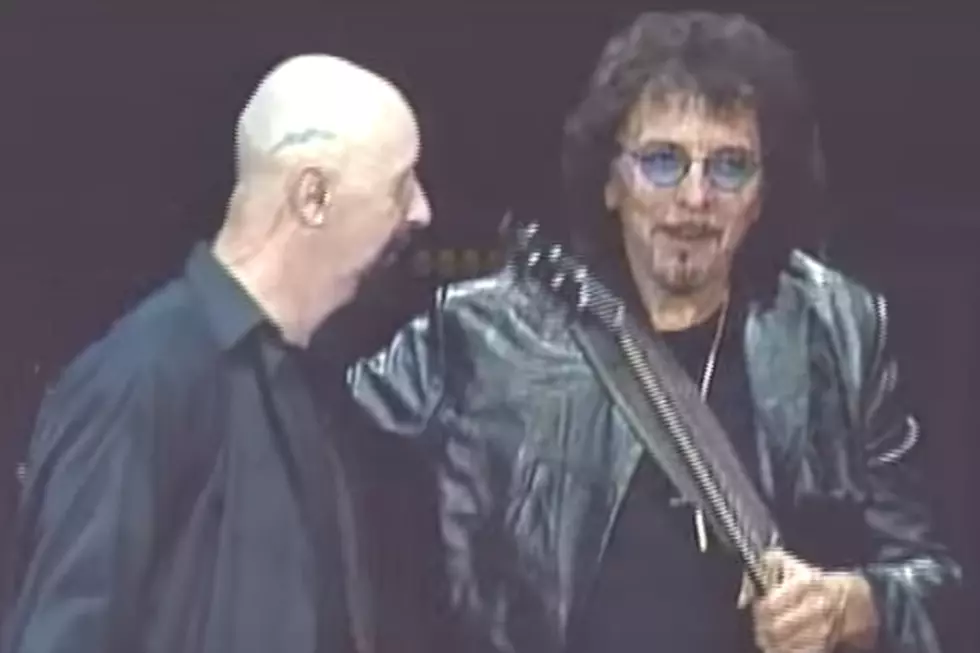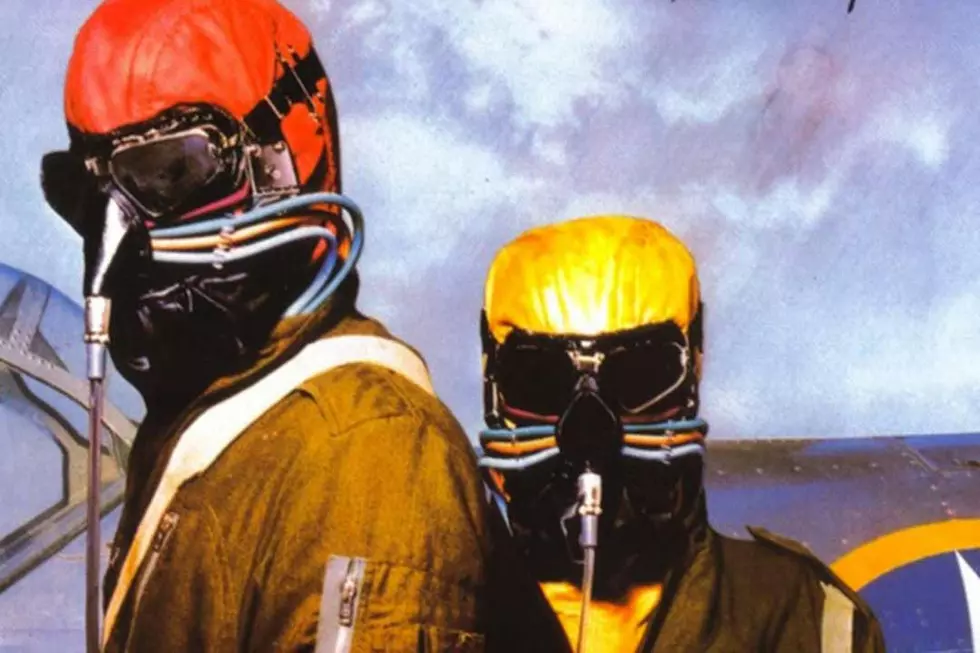
How Black Sabbath Were Reborn on ‘Heaven and Hell’
When Black Sabbath arrived at the fateful decision to carry on after replacing original singer Ozzy Osbourne with erstwhile Rainbow frontman Ronnie James Dio, the resulting new album could have been heaven or it could have been hell. But, as any heavy metal fan worth his salt will tell you, Heaven and Hell was the best of both extremes when it arrived on April 25, 1980.
The greatest irony of it all was that Heaven and Hell didn't even start out as a Black Sabbath record. Instead, it was the first project for proposed new band that, through a combination of record-label pressure and the belated involvement of longtime bassist Geezer Butler and drummer Bill Ward, eventually morphed into the second coming of Black Sabbath.
When Tony Iommi bumped into Dio at Los Angeles’ Rainbow Bar and Grill then invited him back to the studio for a jam, not even the expedient composition of “Children of the Sea” was taken as an omen for Black Sabbath’s rebirth. After all, Butler was so set against continuing without Osbourne (and dealing with a nasty divorce, to boot), that bass playing duties at these sessions were handled by former Quartz guitarist Geoff Nicholls.
It was Nicholls, in fact, who accidentally lifted the proceedings to the next level when he recycled a distinctive, hypnotic bass line from one of his old band’s songs, “Mainline Riders,” for what would become Heaven and Hell’s colossal title track. (The bass line so simple, in fact, that Butler later admitted he would have never thought to play it that way.) They briefly considered a name change to just plain Sabbath, but Geezer’s eventual return and Ward’s availability cemented Black Sabbath’s resurrection.
Dio, Iommi, Butler, Ward and Nicholls, who was now entrusted with keyboard duties, got serious about demoing and rehearsing their new songs in Los Angeles before moving their operation to Miami’s Criteria Studios (and bunking down at the home of Bee Gees star Barry Gibb). There, they met up with hard-rock producer Martin Birch (Deep Purple, Whitesnake, etc.) and got down to the business of conjuring up Heaven and Hell.
Listen to Black Sabbath Perform 'Neon Knights'
Besides the title track and “Children of the Sea,” additional highlights included the frenetic “Neon Knights” (Butler’s only major songwriting contribution to the album), the majestic “Die Young” (ignited by Nicholls’ synthesizers) and the doom-laden blues of “Lonely Is the World.” They formed the backbone of Black Sabbath’s strongest album in half a decade, but not without further support from more straightforward, hard-rocking numbers like “Lady Evil,” “Wishing Well” and “Walk Away.”
Heaven and Hell simultaneously attracted a new legion of younger fans with Birch’s modern update of the band’s beloved old template, while temporarily infecting scores of older fans with a strange form of amnesia that left them asking questions like: “Ozzy who?”
Blizzard of Ozz was only starting to take shape in those early months of 1980, there was simply no doubting Heaven and Hell’s immediate success, as the album soared into the U.K. Top 10 and the U.S. Top 30 – both rankings not seen since the Sabotage era. Black Sabbath’s ninth studio album also raced beyond the gold to platinum sales benchmarks in the U.S. alone, thus making it the band’s third-place career bestseller, after 1970’s Paranoid and 1971’s Master of Reality.
Just a few months into the band’s subsequent headline tour, however, Ward bailed out on the band to cope with his worsening substance abuse and the recent death of his parents, opening the door for Vinnie Appice to take over the drums. The following year’s Mob Rules almost replicated Heaven and Hell’s considerable achievements, it would also accelerate the deteriorating relationship between Dio, Iommi and Butler.
Dio finally embarked on his long-mooted solo career in 1983, and Black Sabbath fell once again into disarray, and they didn't fully recover until the group’s mid-‘90s reunion with Osbourne.
Top 50 Classic Heavy Metal Albums
You Think You Know Black Sabbath?
More From Ultimate Classic Rock









